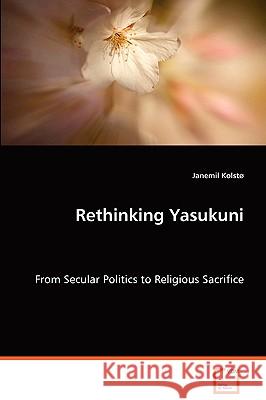Rethinking Yasukuni - From Secular Politics to Religious Sacrifice » książka
Rethinking Yasukuni - From Secular Politics to Religious Sacrifice
ISBN-13: 9783836451949 / Angielski / Miękka / 2008 / 220 str.
Yasukuni is a Shintoist shrine where imperial Japan's war dead are enshrined. It has become an increasingly notorious location over the last five decades because it houses, among its 2.5 million deities, the spirits of a dozen Class-A war criminals. Despite this fact, regardless of constitutional bans, and in the face of a reproachful national and international audience, a number of Japanese prime ministers have insisted on presenting offerings there. "Rethinking Yasukuni - From Secular Politics to Religious Sacrifice" is the first English-written monograph that examines the shrine as a predominantly religious location. This publication is also based on one of the few anthropological fieldworks that has been carried out at Yasukuni, and thus offers novel ethnographic insights. Moreover, because it attempts to approach the shrine from an evolutionary and cognitive point of view, "Rethinking Yasukuni" touches on key issues in the current history of religions.
Yasukuni is a Shintoist shrine where imperial Japans war dead are enshrined. It has become an increasingly notorious location over the last five decades because it houses, among its 2.5 million deities, the spirits of a dozen Class-A war criminals. Despite this fact, regardless of constitutional bans, and in the face of a reproachful national and international audience, a number of Japanese prime ministers have insisted on presenting offerings there. "Rethinking Yasukuni - From Secular Politics to Religious Sacrifice" is the first English-written monograph that examines the shrine as a predominantly religious location. This publication is also based on one of the few anthropological fieldworks that has been carried out at Yasukuni, and thus offers novel ethnographic insights. Moreover, because it attempts to approach the shrine from an evolutionary and cognitive point of view, "Rethinking Yasukuni" touches on key issues in the current history of religions.











